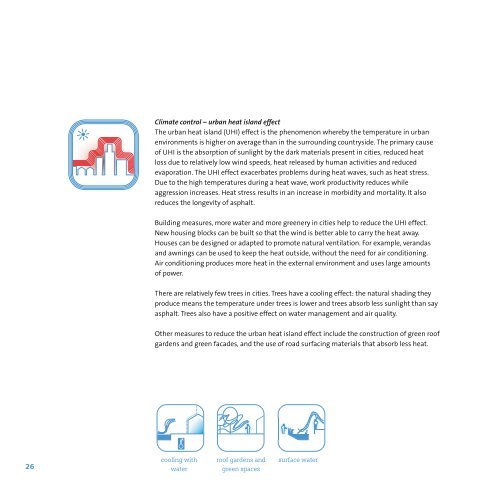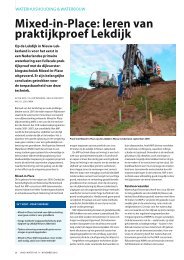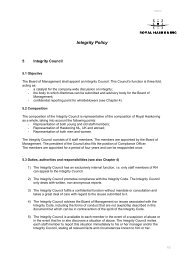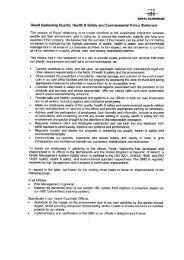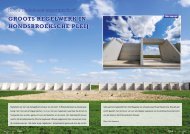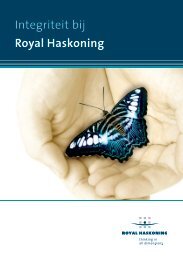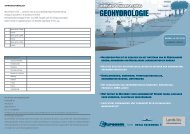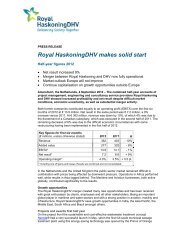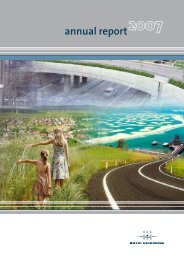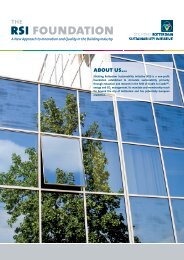book "Building the Water Sensitive City" - Royal Haskoning
book "Building the Water Sensitive City" - Royal Haskoning
book "Building the Water Sensitive City" - Royal Haskoning
You also want an ePaper? Increase the reach of your titles
YUMPU automatically turns print PDFs into web optimized ePapers that Google loves.
Climate control – urban heat island effect<br />
The urban heat island (UHI) effect is <strong>the</strong> phenomenon whereby <strong>the</strong> temperature in urban<br />
environments is higher on average than in <strong>the</strong> surrounding countryside. The primary cause<br />
of UHI is <strong>the</strong> absorption of sunlight by <strong>the</strong> dark materials present in cities, reduced heat<br />
loss due to relatively low wind speeds, heat released by human activities and reduced<br />
evaporation. The UHI effect exacerbates problems during heat waves, such as heat stress.<br />
Due to <strong>the</strong> high temperatures during a heat wave, work productivity reduces while<br />
aggression increases. Heat stress results in an increase in morbidity and mortality. It also<br />
reduces <strong>the</strong> longevity of asphalt.<br />
<strong>Building</strong> measures, more water and more greenery in cities help to reduce <strong>the</strong> UHI effect.<br />
New housing blocks can be built so that <strong>the</strong> wind is better able to carry <strong>the</strong> heat away.<br />
Houses can be designed or adapted to promote natural ventilation. For example, verandas<br />
and awnings can be used to keep <strong>the</strong> heat outside, without <strong>the</strong> need for air conditioning.<br />
Air conditioning produces more heat in <strong>the</strong> external environment and uses large amounts<br />
of power.<br />
There are relatively few trees in cities. Trees have a cooling effect: <strong>the</strong> natural shading <strong>the</strong>y<br />
produce means <strong>the</strong> temperature under trees is lower and trees absorb less sunlight than say<br />
asphalt. Trees also have a positive effect on water management and air quality.<br />
O<strong>the</strong>r measures to reduce <strong>the</strong> urban heat island effect include <strong>the</strong> construction of green roof<br />
gardens and green facades, and <strong>the</strong> use of road surfacing materials that absorb less heat.<br />
26<br />
cooling with<br />
water<br />
roof gardens and<br />
green spaces<br />
surface water


